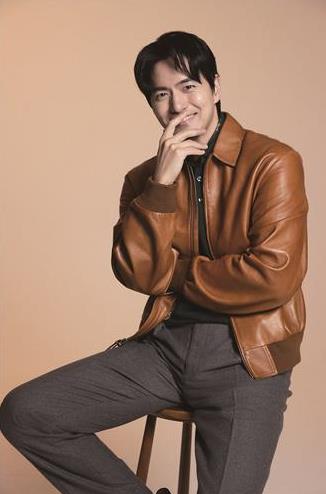The central story follows the relationship between a junior lawyer and his mentor.
Lee Jin-wook plays the cool, measured partner Yoon Seok-hoon.
The series tries to balance realistic detail with dramatic storytelling.
Esquire: What the firm portrait tells us
Case summary
Here are the essentials.
The upcoming JTBC series Esquire is set at a large law firm called Yullim and traces the lives of lawyers from junior associates to partners.
The main figures are new lawyer Kang Hyo-min and partner Yoon Seok-hoon; Yoon acts as a mentor who guides Hyo-min’s practical development and moral reflection.
Pre-release interviews and promotional material already sketch out the characters and the conflicts between them.
The exact timeline and specific cases will unfold episode by episode. However, the show’s emphasis is clear: it spends less time on courtroom victories and more on offices, meeting rooms, and the everyday choices and conversations of lawyers.
Lee Jin-wook has said this is his first time playing a lawyer. In interviews he suggested the character’s logical,冷(quick correction: "cool and logical") temperament fits his image and acting strengths.
Core issues
The show raises several layered questions.
First, viewers will watch to see how realistically the legal world is portrayed.
Where classic courtroom dramas focus on trial outcomes and procedures, Esquire foregrounds individual career arcs, personal conflict, and internal firm dynamics.
Consequently, the series may simplify or adapt legal procedure for dramatic momentum.
Also important is how the mentor–mentee dynamic is shown. Yoon Seok-hoon must give believable, practical guidance while navigating the firm’s own interests. On the other hand, if the mentor is idealized too much, the show risks flattening the complexity of workplace power structures.
Different audiences will judge these choices differently. Legal professionals tend to value accuracy, while general viewers prioritize emotional storytelling.
Arguments in favor
There are clear strengths.
First, the show can diversify how legal knowledge is presented. Instead of a trial-by-trial format, focusing on office conflicts, mentoring, and ethical case selection can portray the lawyer’s job in richer detail.
Second, the actors’ challenges add authenticity. Lee Jin-wook’s portrayal of a firm partner creates subtle emotional textures in his interactions with junior colleagues.
Third, showing varied lawyer types prevents a single, monolithic image of the profession. Late-career entrants, associates, and partners each follow different paths; that diversity helps audiences understand law as a range of careers.
Fourth, the mentor–mentee arc can showcase not only skills but also character, ethics, and organizational adaptability—useful reference points for aspiring lawyers.
Arguments against
There are legitimate concerns.
First, the series could glamorize the profession. If dramatic choices romanticize lawyers’ sacrifices and decisions, systemic problems like power imbalances may be obscured. That risks misleading viewers about how the legal world actually works.
Second, simplifying legal procedure can create misunderstandings.
Third, exaggerated internal conflict could harm the profession’s image. If the plot centers on extreme competition or unethical shortcuts, it may reinforce negative stereotypes about lawyers.
Fourth, misrepresenting legal reasoning or doctrine could spread false impressions, especially among students or viewers interested in rule of law and procedure.
Media shapes public views. Thus, production teams bear a responsibility for how they depict workplace norms and ethics. Yet, leaning too far into documentary realism can also sap dramatic interest, so a balance is necessary.
Comparing viewpoints
The debate boils down to two priorities.
Supporters say the show enriches workplace storytelling through human-focused mentor–mentee arcs.
Critics warn about distortions and ethical oversights.
These positions reflect a deeper split over the media’s role in portraying expertise.
Historically, older legal dramas concentrated on courtroom battles. More recent works tilt toward workplace relationships and character development. This shift mirrors audience fragmentation, new viewing habits, and producers’ narrative choices.
Legal scholars and practitioners often point to the social cost when accuracy is traded for drama, while critics and general audiences often welcome greater emotional engagement.
In-depth analysis
Why is the genre changing?
One reason is the media environment. Viewers now connect more with characters’ inner lives and relational drama than with procedural puzzles.
Casting choices and actors’ willingness to take risks also raise realism and immersion.
Online reactions show two coexisting responses. One praises acting and character design—Lee Jin-wook’s Yoon is often described as a mentor who combines cool logic with warm counsel. The other questions legal accuracy and ethical framing.
Mixed public trust in legal institutions amplifies the show’s impact. Given that power, the creators’ narrative choices carry real social implications.
Policy and ethical implications
Consider the show’s social reach.
Dramas influence how people view jobs and workplaces.
Therefore, handling ethics on screen is not just a storytelling tool; it can serve an educative function.
Producers should consider how portrayals affect perceptions of job security and workplace norms.
For example, portraying a mentor as flawless or utterly corrupt can lock audiences into extreme views. Showing a mentor who makes mistakes and reflects on them communicates both ethics and growth.
By depicting working conditions, ethical dilemmas, and decision-making, a drama can open up public conversation about professional life.
Conclusion
To summarize plainly.
The drama Esquire sets its story inside a law firm and centers on lawyer growth and workplace relationships.
Lee Jin-wook’s Yoon Seok-hoon must balance his mentor role with the firm’s internal tensions.
Ultimately, the show's success depends on finding the right mix of dramatic interest and factual credibility.
We leave readers with a question: How should television portray the realities of work and professional life?
Opinions will vary, so viewers should judge based on their own experiences and standards.
